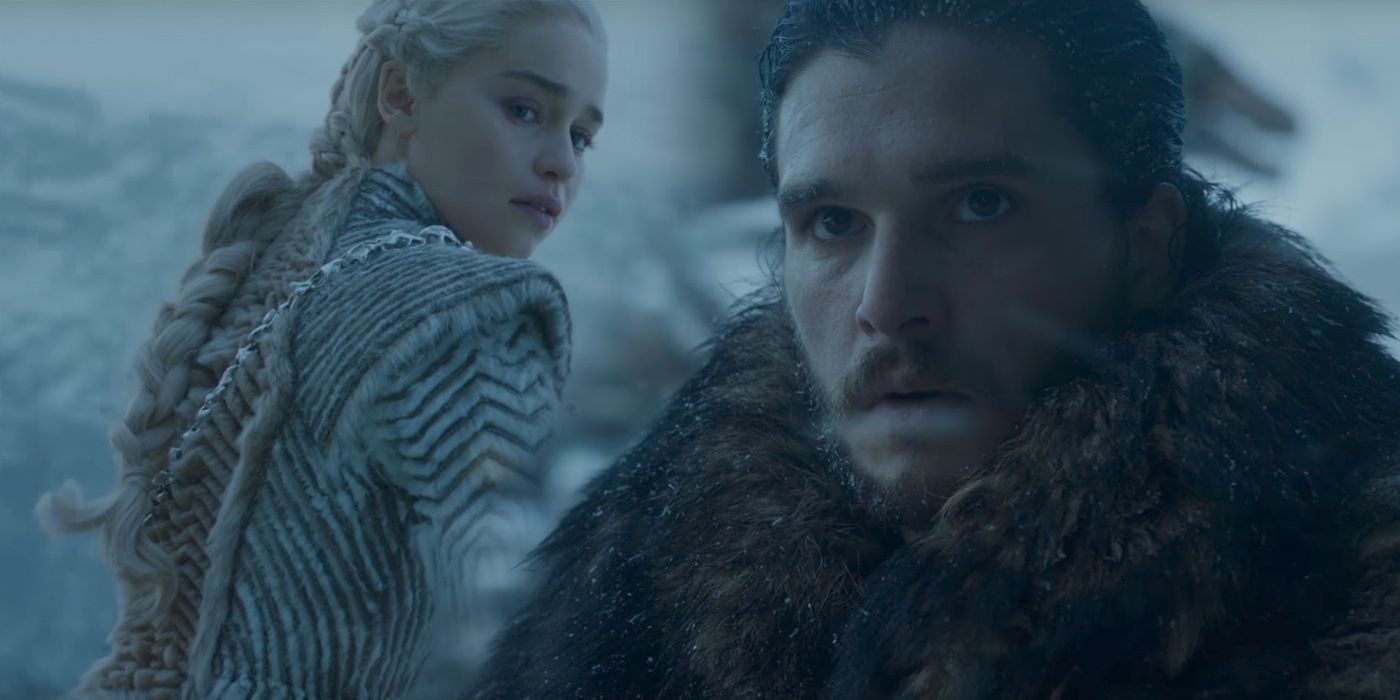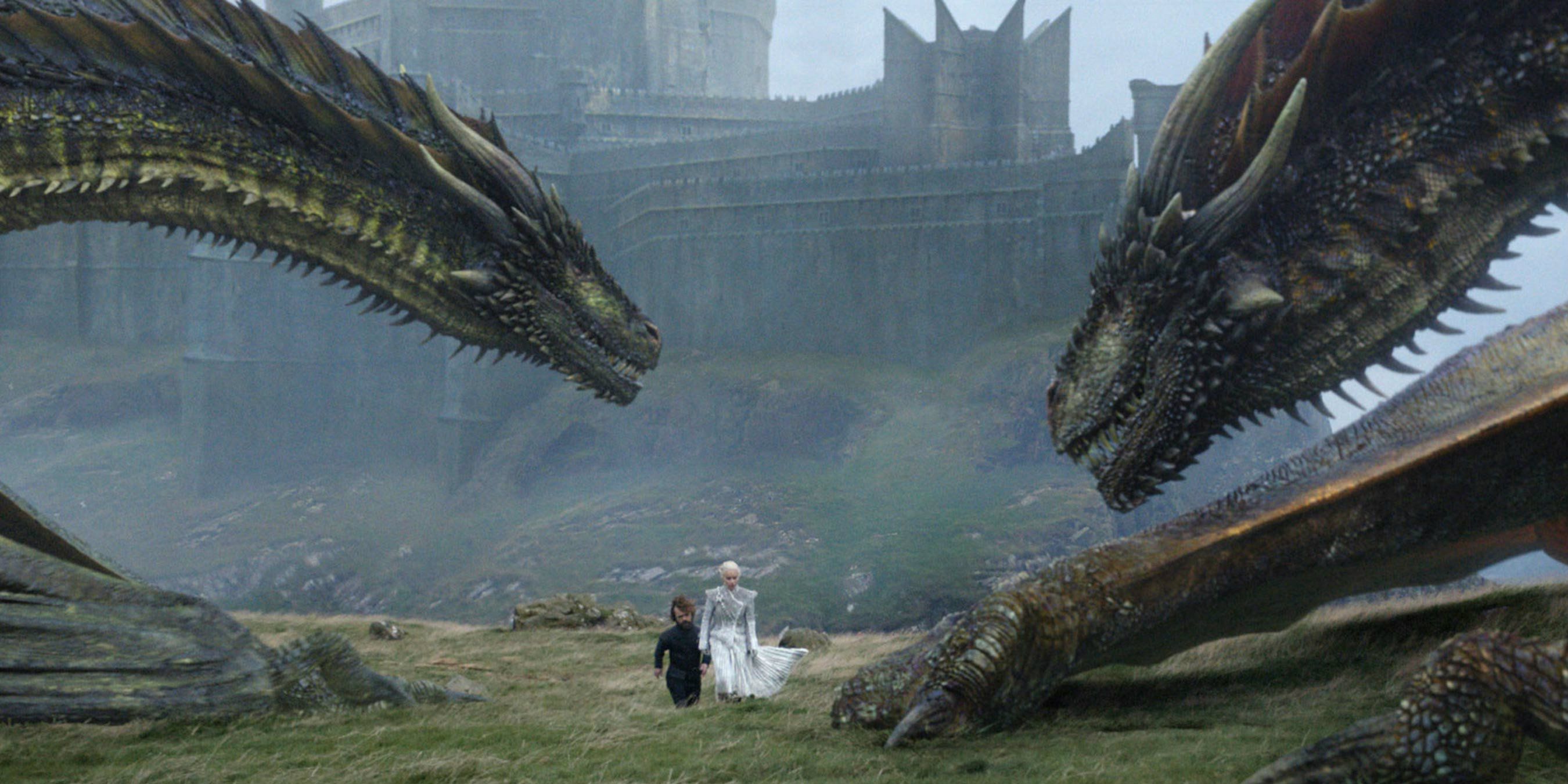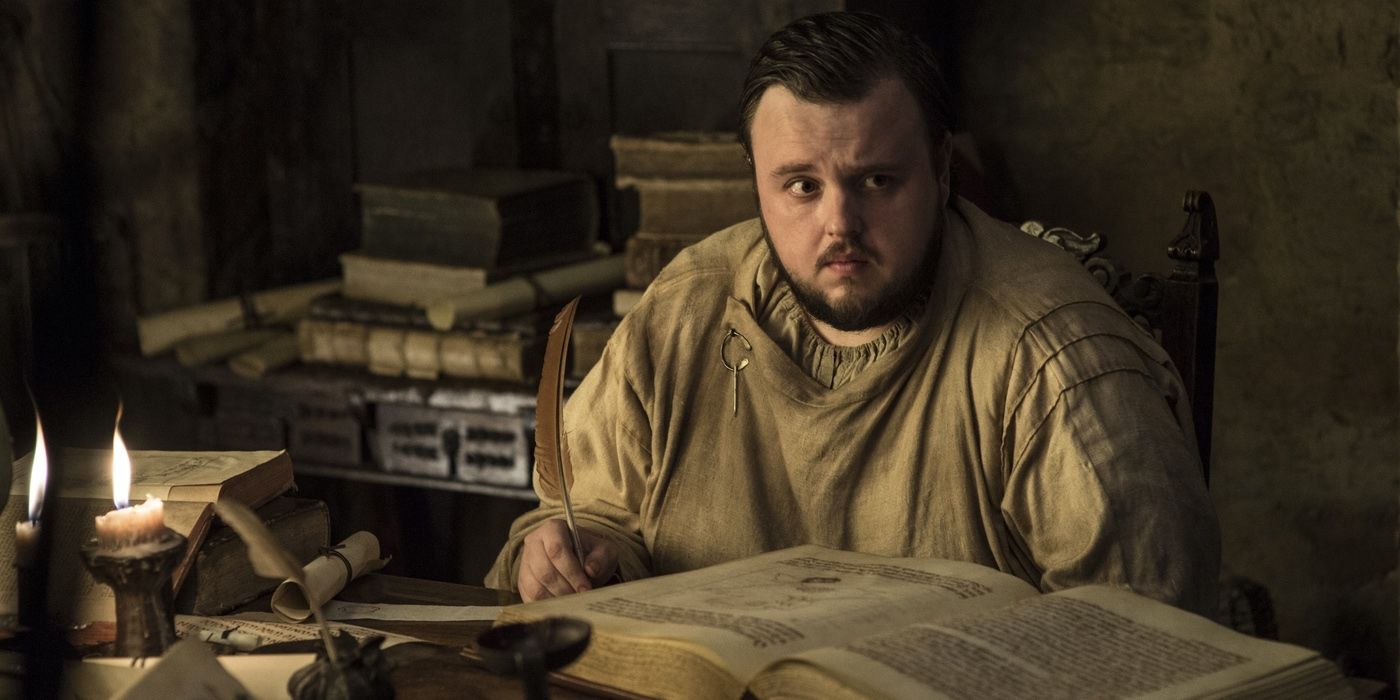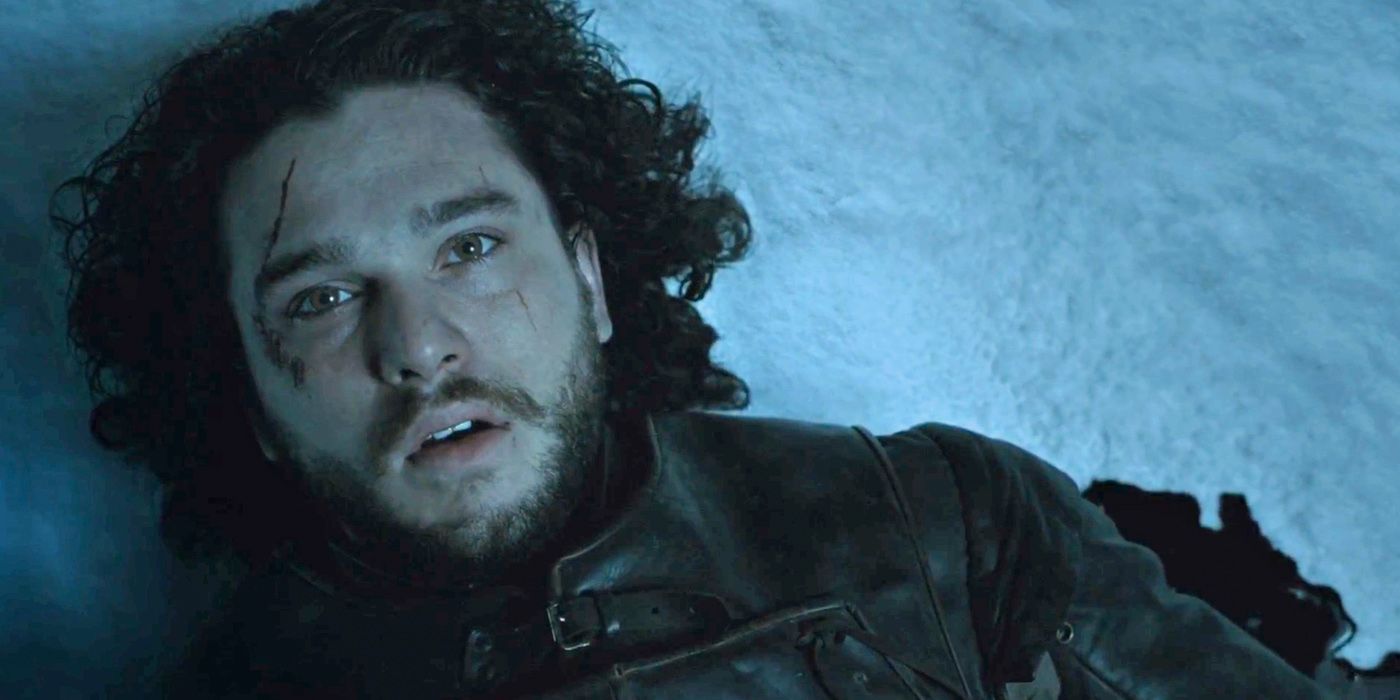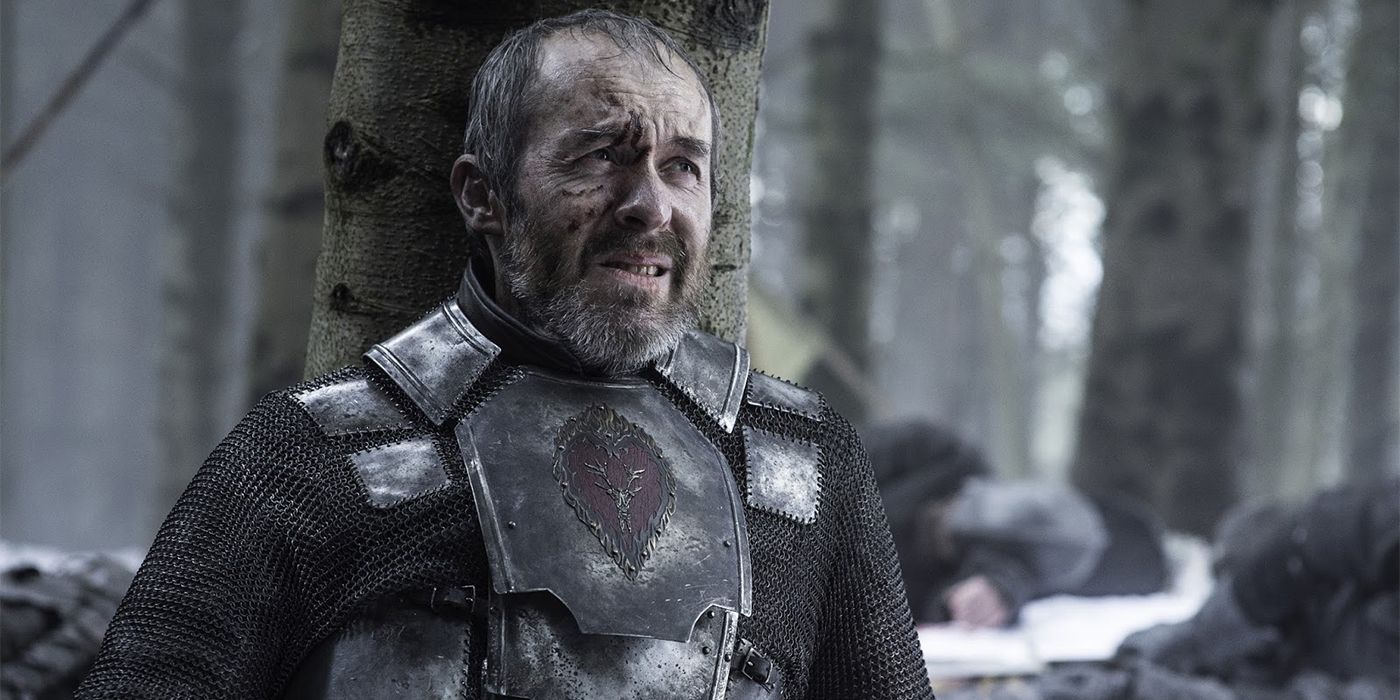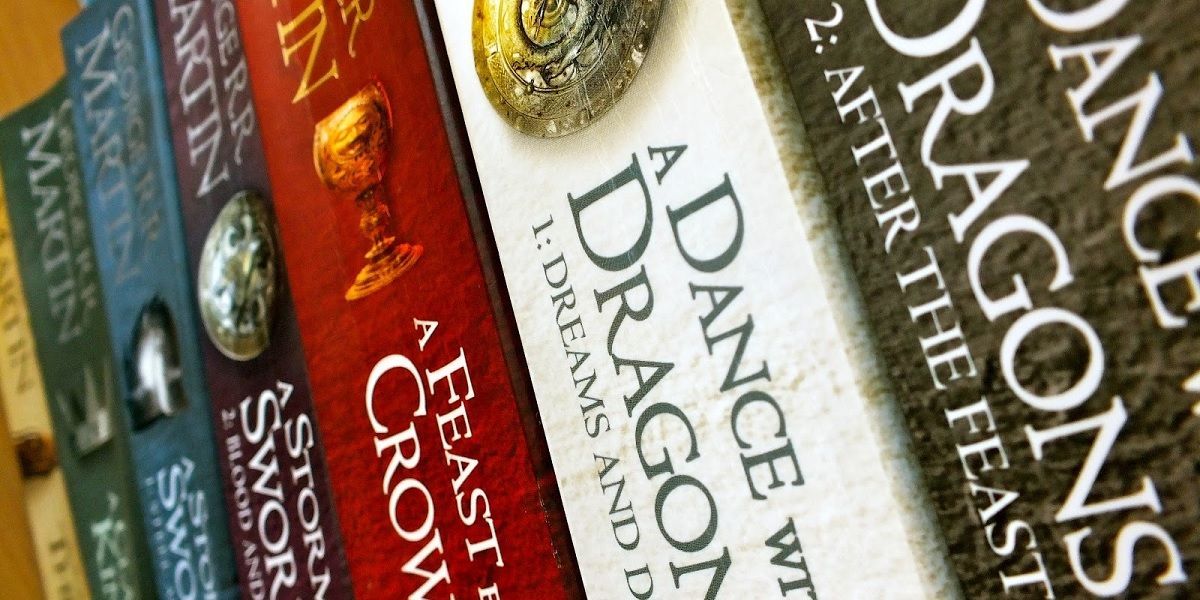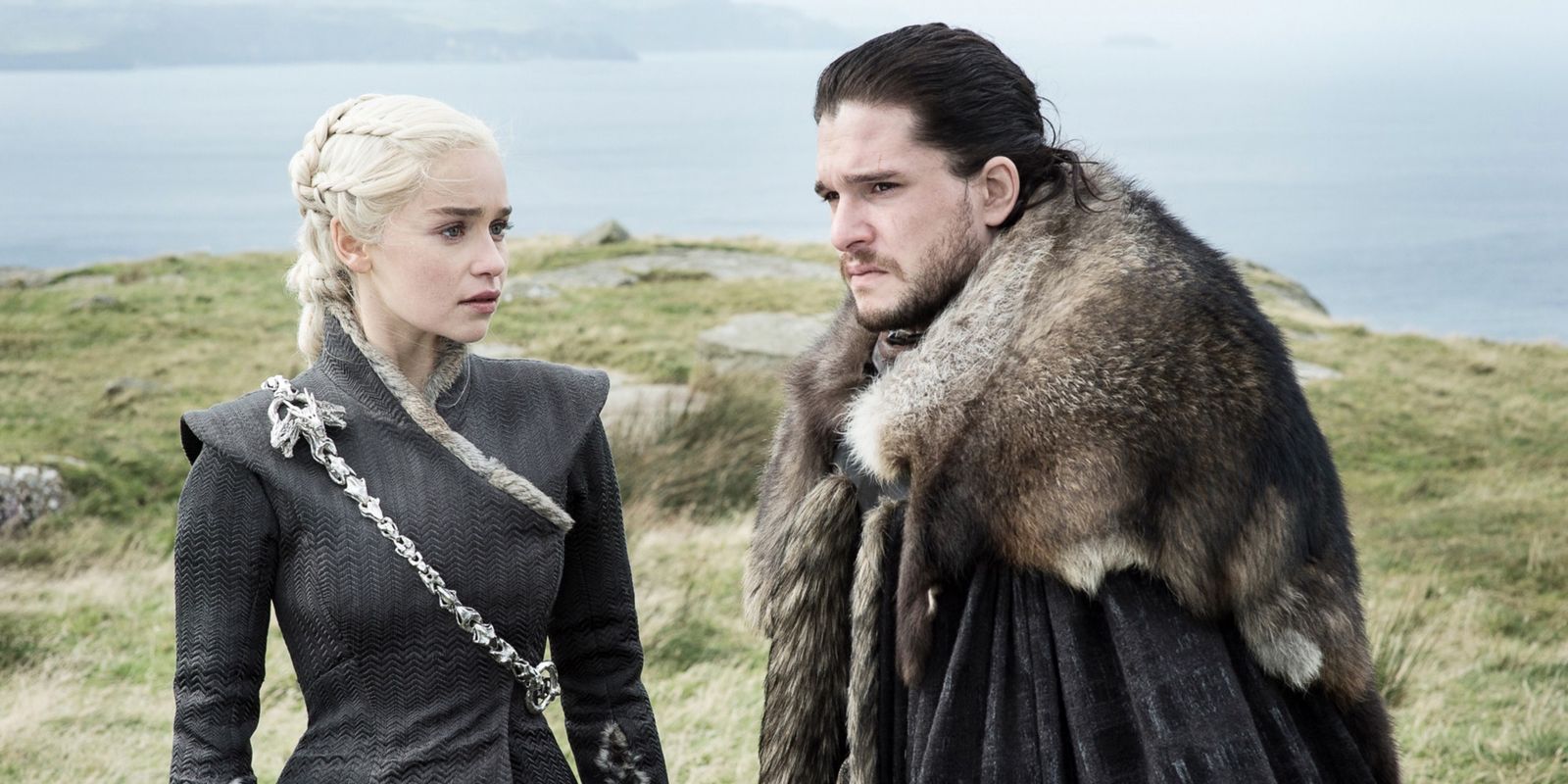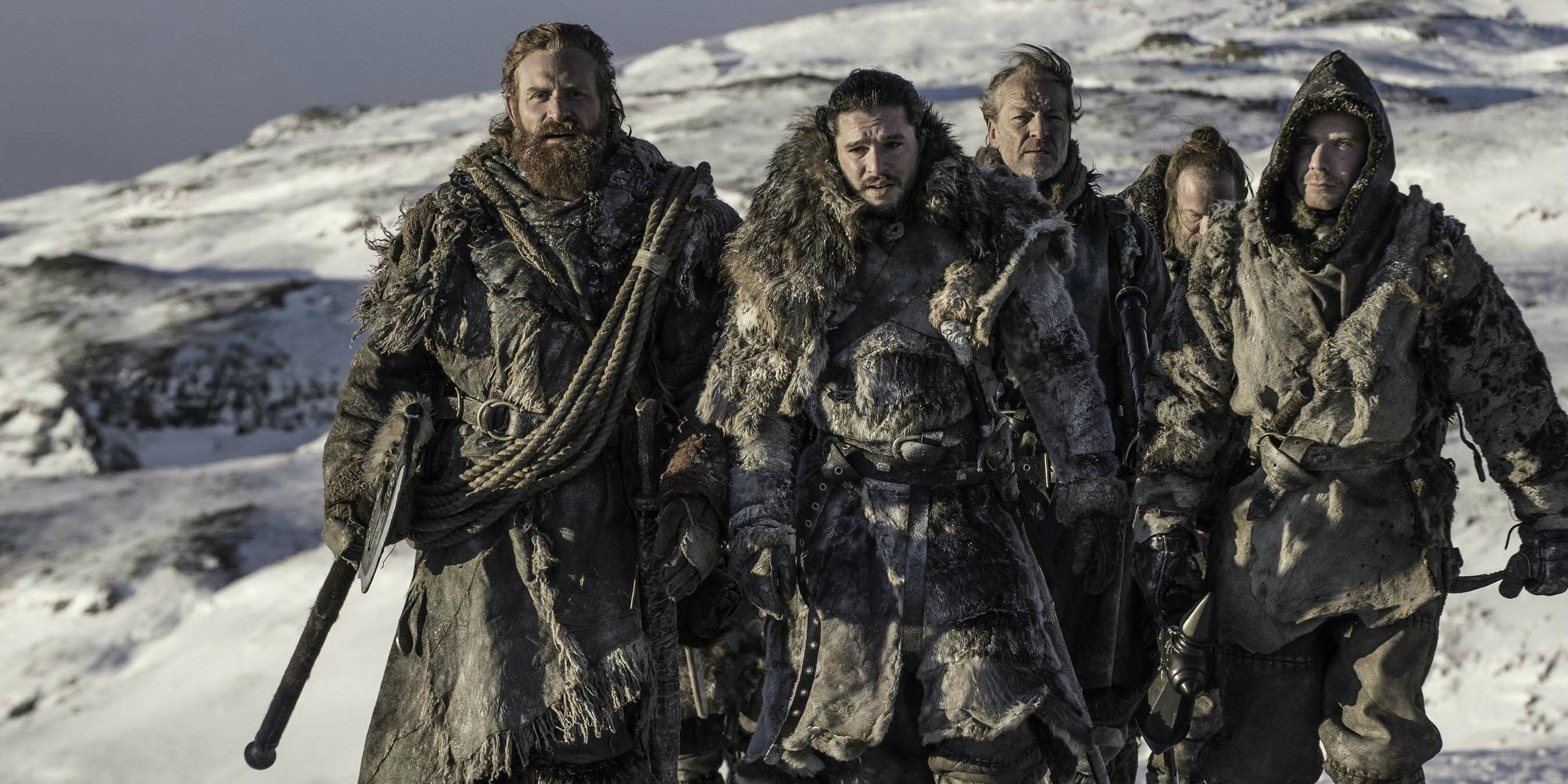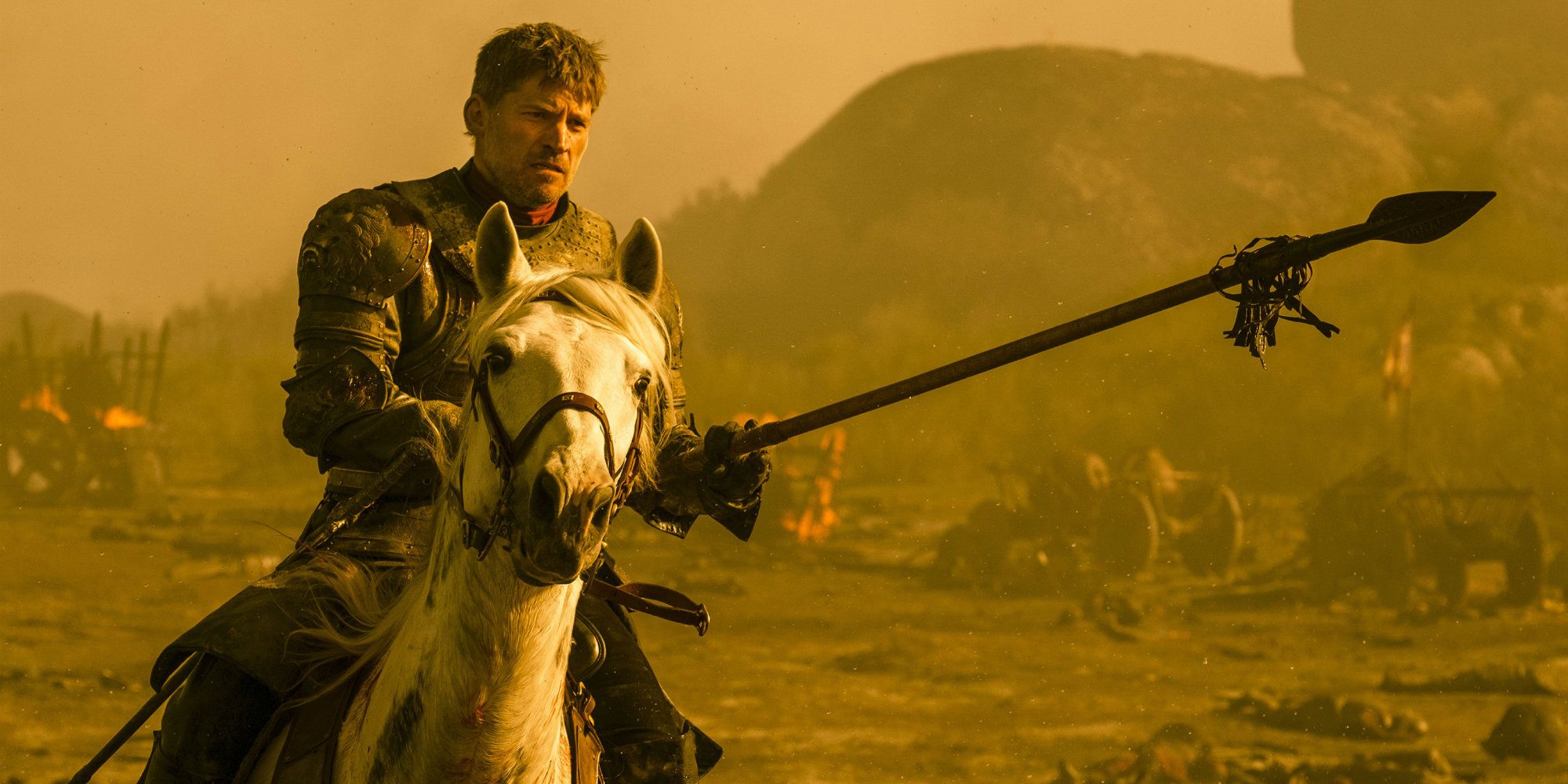In Season 7, Game of Thrones has gone from being one of the highlights of prestige TV to a mainstream string of fan-baiting moments. Today we want to look at how a show once prized for expert storytelling turned dumb.For all the focus in the early press on sex and gore and sex, Game of Thrones became the biggest show on television thanks to how it told its story. It was a medieval-themed political fantasy on an epic scale that built a gigantic, cohesive world and populated it with believable, nuanced characters who made flawed, human decisions. It was cruel yet captivating.The show we have now is a shadow of those things: genre-wise there's little to distinguish it from the typical high fantasy it was once subverting; the world has become a video game map of fast travel teleports that bend to the narrative's demands; the participants are Flanderized archetypes who make increasingly out of character decisions, either to serve the careening plot or create artificial drama. It's empty and exasperating.
Why Game of Thrones Is Now Bad Storytelling (This Page)
Why Game of Thrones Is Becoming Bad Storytelling
Let's take a look at the penultimate episode of the season. Usually this - Episode 9 usually, this year Episode 6 - is a highlight of the year, giving the big, often shocking turn or climactic battle that accelerates the story forward. Previously that's meant Ned's death, the Battle of Blackwater, the Red Wedding, the Battle of the Wall, the Sons of the Harpy's attack (that's a weaker one), and the Battle of the Bastards. In Season 7, it's "Beyond The Wall". This certainly has show-stopping moments - chief among them Viserion is killed then resurrected by the Night King - and excellent interactions between previously separated characters, but the overall story of Jon's Suicide Squad is a mess of contradictions and poorly conveyed plot points; it's basically Thrones' version of the notoriously abysmally-edited movie Suicide Squad.
To list everything stupid in the episode would take far too much time, so here's an overview. The plan - take a zombie to zombie-protected Cersei - is already questionable but the execution is baffling; they fortuitously kill a White Walker yet leave one wight alive, but then get trapped in the middle of a lake while Gendry (who is arbitrarily now the fast one) runs to Eastwatch, sends a raven across the continent and Dany flies up overnight. It's so heavy on deus ex machina, with the dragons (who surely should have been the first port of call for this) and Benjen Stark (a seven-seasons in the making reunion with his nephew that's downplayed) both turning up at the last minute to save Jon (the latter's particularly egregious given that to leave Jon behind in the first place he had to start fighting random wights without a lick of the character's self-preservation). Even execution-wise it's dumb - Kit Harrington pretends to go to sleep like a three-year-old when Dany tells Jon to rest. And below the Wall, why is Arya suddenly being a cold-ass bitch to Sansa?
Read More: Game of Thrones Director Admits Timeline May Be Straining Plausibility'
It's hastily conceived and illogical, a far cry from the adept nuance of previous episodes of its type. Another good comparison point is "Hardhome", which had a similar departure from politics for out-and-out fantasy, yet one that's unexpected, fraught and most importantly believable (as believable as ice zombies can be).
But "Beyond the Wall" is just the tipping point of a season that has given up pacing, flow and at points cohesion for speed; the six episodes have been full of what should be banner events that feel either poorly set-up or of minimal long-term importance. Was Nymeria's return really as impactful as we were led to believe? Has Sam learned anything of fresh importance after years traipsing to the Citadel? And what, if anything, is the long-standing impact of Jaime and Cersei finding out who really killed their child?
Now, through all this Game of Thrones is still at worst above average and there are good moments that realize things viewers have been waiting through years of set up to experience (in readers' cases decades). So for all the flaws there is an underlying sense of gratification; the dragons finally do something, characters long kept apart meet and Gendry finally stops rowing. And a lot of this specific plot movement has been effective - when the show gives breathing room for two well-established personalities with a complex history to just interact you can see what it once was. However, in terms of big scope they're little more than fan service and don't reflect good storytelling; simply having a dragon do something isn't by itself enough.
Season 7 has the makings of a good story. There's a lot of forward-momentum and much of it is payoff of what's been shown before. The problem is that it's told badly - which you can see in its former biggest strength.
Death Is Now Meaningless in Game of Thrones
You cannot underestimate the power of the telling. We often talk about how good narratives are but it's the story - the way a movie/TV show/game is told and the meaning inferred to the plot - that makes it great. Imagine if Memento was told in chronological order or Up missed out its tear-jerking opening - you have the same basic plot but the core themes and story arcs are totally different. Game of Thrones is a mammoth story full of interconnecting threads of immense subtextual meaning. It's visceral and cerebral.
Perhaps the best example - both in what made Thrones great and what it's since lost - is death. Out of all the ways the show told its story, this was the most celebrated. Characters could be offed in horrific, unjust ways seemingly at random, defying convention and formula. But this was still storytelling with a clear purpose. After all, from a Season 7 perspective, that Ned or Robb were killed is by-the-by; we now know they clearly weren't the main characters but pieces of a much bigger whole centered on Jon, Dany and co. The skill was in making us think this carefully crafted narrative was random.
Now, though, death has lost all meaning. Plenty of people do still die, but they're supporting characters at best (and in "Beyond the Wall" hitherto unseen red shirts) removed to cut the fat. Main characters have a plot armor, even when their real armor threatens to drown them.
Read More: Who Died in This Week's Episode of Game of Thrones?
The last major character to be killed was Jon Snow all the way back at the end of Season 5, and that felt like a cheap trick when he was resurrected two episodes later (an early sign of these problems). Before him it was Stannis, meaning the last truly essential character to be killed and stay dead was over two years ago. Seven named characters went beyond the wall on a suicide mission and only the least recognizable or important one bit the ice; everyone else got thrown into feigned threat but came out alive. Like fellow kill-fest shows Lost and The Walking Dead that loved to proclaim "nobody is safe", Game of Thrones appears to be too enamored with its characters to truly test them.
Of course, this is also the product of Season 7 being the penultimate year; we're in the final act and so whereas in the Battle of the Five Kings the plot was a sprawling uncertainty, we know what the true end goal and who its key participants are. You can't kill Jon or Dany or Tyrion or others because they're the center of the War to Come; sure, they were always the clear leads, but now there are no other disposable mains to distract from that.
Thrones is, by its creator's admission, a classic fantasy tale reimagined, and so a finale with a set roster of characters would happen. But the show is offering little of that subversion as it goes and seems to still want the tension of its younger self - in the past handful of episodes Jon has been in a deadly situation five different times (taking on the Boltons and almost crushed in "The Battle of the Bastards" and surrounded by wights, almost drowning in ice water and again surrounded by wights in "Beyond the Wall") and each time is saved by a well-timed plot device (the Stark army, the Vale army, dragons, impressive lung capacity and Benjen respectively). There's no tension - he's already died once anyway - so perhaps there should be a different approach.
But death is just one part of the problem Game of Thrones is having with its ending.
Game of Thrones Overtaking The Books Is Worse Than We Thought
There's one word we've purposely avoided using in this article so far, but it's now at a point where we can't avoid the prevaricating writer in the room any longer: a lot of this is to do with the books.
As you all know, Game of Thrones is based on George R.R. Martin's A Song of Ice and Fire and in its great early years was a pretty faithful adaptation. Each book was given around a season apiece and while there were plenty of changes made as Benioff and Weiss went on they were ultimately capturing the author's unique storytelling style (albeit with some scenes away from his patented POV characters). However, the one thing Martin's known better for than offing your favorite characters is taking a long time to write these tomes - A Dance With Dragons was released in 2011, but sixth entry The Winds of Winter is still yet to materialize, with him repeatedly missing publisher deadlines (it's even the subject of the best scene in Logan Lucky).
This means that the show has wound up in the unexpected situation of overtaking its source. This began in Season 5, which started vastly deviating from the books (Sansa's still in the Vale in print) and advancing beyond it (the death of Shireen), and for the past two years it's been in uncharted territory. Of course, Martin's given the showrunners an overview of the plot of Winds and final book A Dream of Spring, specifically the ultimate ending and key embedded plot points (Shireen, Hold the Door and R+L=J). This, coupled with how adept the show had been up until that point, filled us with confidence.
However, it's now clear having the rigid layout of the books was more important to HBO's show than we gave it credit. Season 6 was incredibly strong but Season 7 feels like a string of Martin-authored big moments connected by Benioff and Weiss filler - it's less a flowing, purposed story than it is a tick box of narrative beats to get us to the end. It's competent enough but the fact they're having to pad out an outline that's already slightly different due to the mounting up changes leads to a muddle.
Read More: George R.R. Martin is Too Busy to Watch Game of Thrones
Compare to Season 4 - running from the Purple Wedding through Tyrion's two trials and eventually committing patricide, along with the culmination of the Wildling/Watcher conflict and Dany taking Meereen (the one time Meereen was interesting) - which is widely-regarded as the best year of the show. It's no coincidence that it (and Season 3 with the build up to the Red Wedding) is based on what many readers regard as the best book of the series, and while those plot points are all great, the telling of the Wedding murders and the tension of Tyrion's eventual escape come from a methodical telling. If you were to take these moments devoid of how they were set up and speed through them in seven hours of television - rather than 20 - you'd end up with a confused splurge of ideas without any real purpose; Robb, Joffrey, Oberyn and Tywin all die in dramatic ways that run on from each other but it's unlikely they'd leave the same impact.
And yes, that speed is only exacerbating things.
Game of Thrones Is Rushing For No Real Reason
The throes of narrative convention and a choppy story structure are definitely problems, although if we're being honest what's made Season 7 struggle so much is its unrelenting speed. It's just seven episodes long and yet has packed in more plot than pretty much any previous season. As such, the pacing has been relentless, which is good on a superficial level - if you're here for big steps forward, you're going to get them - but it happens at the expense of really developing the motivations behind it.
Just the other week we wrote about how this story consideration was leading to rampant map-jumping that made little timeline sense, concluding the confusing geography was a worthy flub to allow things to progress efficiently. Now, though, it's clear that this is just part of a bigger systemic problem. Indeed, while "Beyond the Wall" has a confusing teleportation/time lapse issue with Gendry calling for dragons, it's not really the weakest part of the episode. That same argument - dispensing with elements of the world's logic to tell a leaner story - now applies to pretty much everything in the show. The problem is that while you can excuse geography to help character development or other things, when all those dominos fall too you have a fast paced story dispensing all but the most reductive fan bait.
Let's take that aggravating Jaime cliffhanger death fake-out at the end of the widely-praised Loot Train battle in "The Spoils of War". We got only a few moments of the Kingslayer's reaction to his troops being incinerated before he picked up a spear and attempted to joust Daenerys to death; there was no establishment of how last ditch it was as Drogon had just been felled, nor any consideration on Jaime's part to what a potential sacrifice it was. When the show's trying to lead you into thinking this may be the character's last stand (despite the narrative establishing he has a bigger part to play), that's sloppy storytelling. This one's particularly bad because even though it was the series' shortest ever episode they made a conscious choice to rush that entire beat when scheduling and tradition allowed otherwise.
If there was just room for things to breathe, then dumb storytelling be much less of a prevalent issue. And we can't really justify making this year just seven episodes. The stated reasoning is to allow for the increased scale and spectacle, spending the time and money it would take to do ten episodes on just seven, but would it be really that detrimental long-term to add a bit more to the budget and schedule to craft more dialogue and character-based scenes that accentuate the show-stoppers?
Read More: Game of Thrones Needed More Seasons
This is what Game of Thrones actually did in Season 1. The straight adaptation of Martin's first book came in too short and so they wrote a couple of episodes-worth of small, low-budget character scenes away from what the book showed - think Varys and Littlefinger scheming - that, while not plot-essential improved the fabric of the series and bolstered non-POV characters. They, put simply, heightened the story. Was it really that difficult to do something similar?
Although, ultimately, that show we had in Season 1 and what it is in Season 7 is totally different. What was once an adaptation of a popular-yet-niche nerd tome is a cultural phenomenon in its own right. Those who first traveled to Westeros in 1996 are a fraction of the audience and so it's now angled very differently. Being mainstream does not necessarily make it worse, but in straddling so many viewpoints the focus of the story has changed. It's a broader show trying to provide the base level experience with anything deeper left for obsessives to unpack, perhaps best seen in how the near confirmation that Jon is a Targareyan - something teased from the very beginning that redefines the very title A Song of Ice and Fire - came in a flippant scene played as a joke.
-
When it started, Game of Thrones looked like it was a story that was going to break the wheel of fantasy tropes and create something new in its place. As Season 7 comes to a close, it's clear that it's really just another spoke; it's not even going to try and stop it.
Next: One Game of Thrones Star On Why He's Happy the Show Is Ending
Game of Thrones season 7 concludes with The Dragon and the Wolf' this Sunday @ 9pm on HBO.

